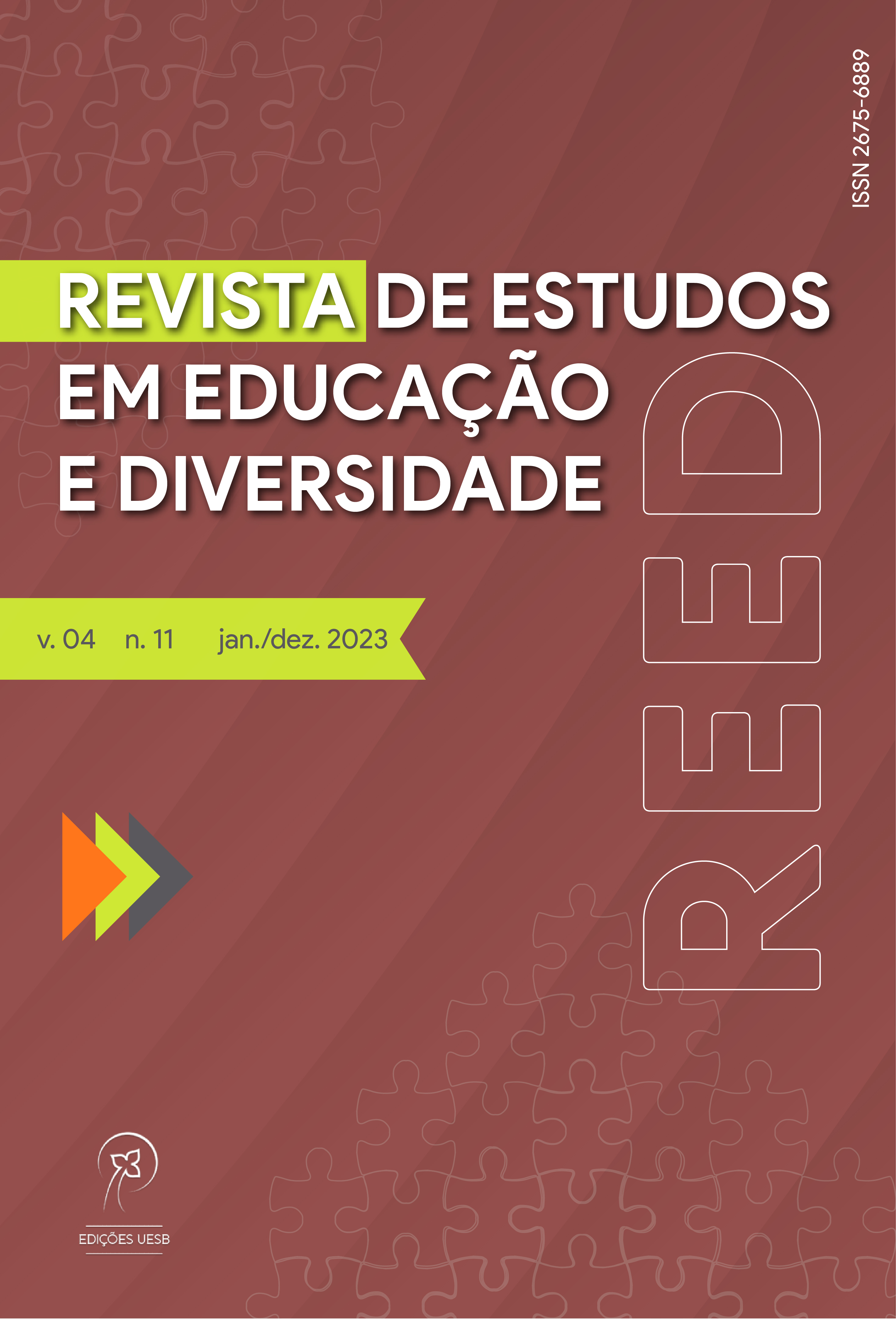Chemistry quiz, an introduction to chemistry content in a contextualized way for high school students
DOI:
https://doi.org/10.22481/reed.v4i11.14052Keywords:
chemical quiz, didactic games, PIBIDAbstract
Understanding the role of actions aimed at the initial training of undergraduate students, as well as the importance of using different methods and instruments in the teaching and learning process, the present work aims to carry out a survey of the prior knowledge of students in a class high school education about understanding the concept of acid-base, through a Quiz. The present study was carried out at the Federal Institute of Education, Science and Technology of Bahia - Ilhéus campus in partnership with scholarship holders from the Institutional Teaching Initiation Scholarship Program, through the development and application of a Chemical Quiz. In order to identify the knowledge arising from the students' participation when inserted in a practice consisting of an educational game, as an alternative to address aspects relating to the history of chemistry and acid-base content, a satisfaction questionnaire was applied, which was subsequently subjected to Discursive Textual Analysis, this approach enabled the identification of units of meaning, and consequently, the categorization of data obtained through student responses. Through the answers, it was observed that the majority of students did not present major difficulties with regard to resolving the questions. For many, the implementation of activities of this nature is still new, as it is characterized as something different from the scenario they usually witness in classes. With regard to the Quiz and its potential, we conclude that it is a great ally both in arousing the interest of students and in creating bonds and interactions between fellows-students, teacher-students and between the students themselves in the class.
Downloads
References
BRASIL. Ministério da Educação. Base Nacional Comum Curricular. Brasília: MEC, 2017.
CARDOSO, Marilete. C. Baú de memórias: representações de ludicidade de professores de educação infantil. Dissertação (Mestrado) - Faculdade de Educação, Universidade Federal da Bahia, Bahia, 2008.
FERNANDES, Rochele da S. , GREGÓRIO, José R. Este Quiz - Um jogo didático para o Ensino de Estequiometria. Revista Virtual de Química. maio, 2021.
FILHO, Benedetti Edemar, CAVAGIS, Alexandre Donizeti Martins, BENEDETTI, Luiza Pires Dos Santos, Um jogo didático para revisão de conceitos químicos e normas de segurança em laboratórios de química. Química Nova Na Escola, São Paulo, v. 42, n. 1, p. 37-44, fev. 2020.
GALIAZZI, M. C; SOUZA. R. S; A didática na caracterização da Análise Textual Discursiva: O movimento recursivo entre a palavra e o conceito. Revista Pesquisa Qualitativa, São Paulo, v.7, n.13, p. 01-22, abr. 2019.
MACEDO, J.M; PENHA, M.R; Desmistificando a Química: investigação das definições dos estudantes do IFRO sobre o real conceito das Reações. Educação Por Escrito, Porto Alegre, v. 5, n. 1, p. 51-67, jan.-jun. 2014.
MESSEDER NETO, Hélio S., MORADILLO, Edilson F. O Lúdico no Ensino de Química: Considerações a partir da Psicologia Histórico-Cultural. Química Nova na Escola, v. 38, n. 4, p. 360-368, nov. 2016.
PAREDE, Giuliana G.; GUIMARÃES, Orliney M. Compreensões e Significados sobre o PIBID para a Melhoria da Formação de Professores de Biologia, Física e Química. Química Nova Na Escola, v. 34, n. 4, p. 266-277, nov. 2012.
PIAGET, Jean. Relações entre a afetividade e a inteligência no desenvolvimento mental da criança. Tradução e organização: Cláudio J. P. Saltini e Doralice B. Cavenaghi. Rio de Janeiro: Wak, 2014.
PRSYBYCIEM, Moises. et al. Experimentação investigativa no ensino de química em um enfoque CTS a partir de um tema sociocientífico no ensino médio. Revista Electrónica de Enseñanza de las Ciencias, 2018.
SOARES, Márion. Jogos para o ensino de química: teoria, método e aplicações. Guarapari-ES: Ex Libris, 2008.
Downloads
Published
How to Cite
Issue
Section
License
Copyright (c) 2023 Revista de Estudos em Educação e Diversidade - REED

This work is licensed under a Creative Commons Attribution 4.0 International License.
You are free to:
Share - copy and redistribute the material in any medium or format; Adapt - remix, transform, and build from the material for any purpose, even commercially. This license is acceptable for Free Cultural Works. The licensor cannot revoke these freedoms as long as you follow the terms of the license.
Under the following terms:
Attribution - You must appropriately give credit, provide a link to the license, and indicate if any changes have been made. You may do so in any reasonable way, but not in a way that suggests that you or your use is endorsed by the licensor.
There are no additional restrictions - You cannot apply legal terms or technological measures that legally restrict others to make any use permitted by the license.






